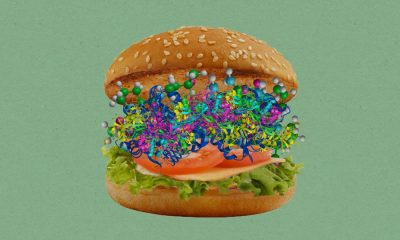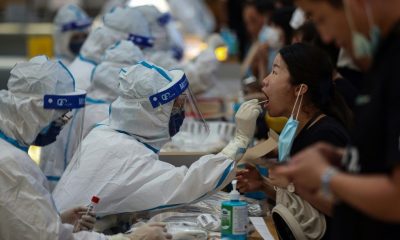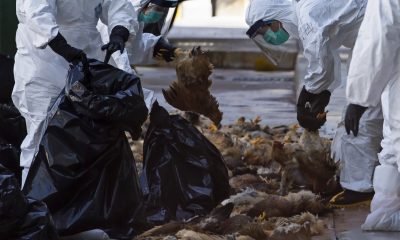Deltacron, a coronavirus recombinant that contains genes from both the Delta and Omicron variants, has been confirmed as a variant of the COVID-19 virus after first being discovered in January.
The first solid evidence of Deltacron was shared by the Institut Pasteur in France, though GISAID said that “further investigations are needed to determine if these recombinants derive from a single common ancestor or could result from multiple recombination events.”
First solid evidence for a Delta #Omicron recombinant virus _ has been shared by @institutpasteur via @GISAID; Accession: EPI_ISL_10819657 — includes the raw sequencing reads! @WHO @doctorsoumya @RickABright @DrTedros @g20org _
Jeremy Kamil __ (@macroliter) March 8, 2022
“It’s a combination of Delta AY.4 and Omicron BA.1. It has been detected in France, it has been detected in the Netherlands, it has been detected in Denmark, but there are very low levels of this detection,” said World Health Organization COVID-19 Technical Lead Maria Van Kerkhove at a press conference Wednesday.
Pls also see here where we talk about the possibility of recombinants of #SARSCoV2. This is to be expected, especially w intense circulation of #omicron & delta. @WHO TagVE is tracking & discussing.
_@GISAID, ___ collaborations & science
ICYMI: https://t.co/jqduC6s3p5 https://t.co/oQ6AAGjegy “>https://t.co/oQ6AAGjegyMaria Van Kerkhove (@mvankerkhove) March 8, 2022
There are also reports that the recombinant variant has been found in the U.S., specifically in San Mateo, California. A lab there that works with the Centers for Disease Control and Prevention (CDC) sequenced 29,719 COVID-19 samples collected nationwide, finding two infections of Deltacron in the process.
According to the Guardian, the variant has also been found in the U.K.
“This is something that is expected given the large amount of circulation, the intense amount of circulation that we saw with both Omicron and Delta,” she added. “We haven’t seen any change in severity but there are many studies that are underway.”
We have known that recombinant events can occur, in humans or animals, with multiple circulating variants of #SARSCoV2. need to wait for experiments to determine the properties of this virus. Importance of sequencing, analytics & rapid data sharing as we deal with this pandemic https://t.co/2qmu6WS118
Soumya Swaminathan (@doctorsoumya) March 8, 2022
The variant has not spread at a growth rate of concern, yet, like Omicron and Delta did. There have been multiple COVID-19 variants, sub-variants, and likely recombinants, and nothing has been as lethal or contagious as the original variant, Omicron, and Delta.
“The pandemic is far from over and not only do we need to focus on saving people’s lives and reducing severe disease and death, we also have to focus on reducing the spread,” Van Kerkhove pointed out.
Her comments come as multiple countries around the world open up travel and loosen COVID-19 restrictions like vaccine requirements and mask mandates. In the U.S., the virus is still spreading at an alarming rate even though the number of cases and deaths is decreasing from much higher levels earlier in the year and in the latter part of 2021.
“We cannot allow this virus to spread at such an intense level. It doesn’t mean locking people down, locking people in their homes, it means using simple tools in a layered approach,” Van Kerkhove said, because as long as the virus keeps spreading more variants will appear
















